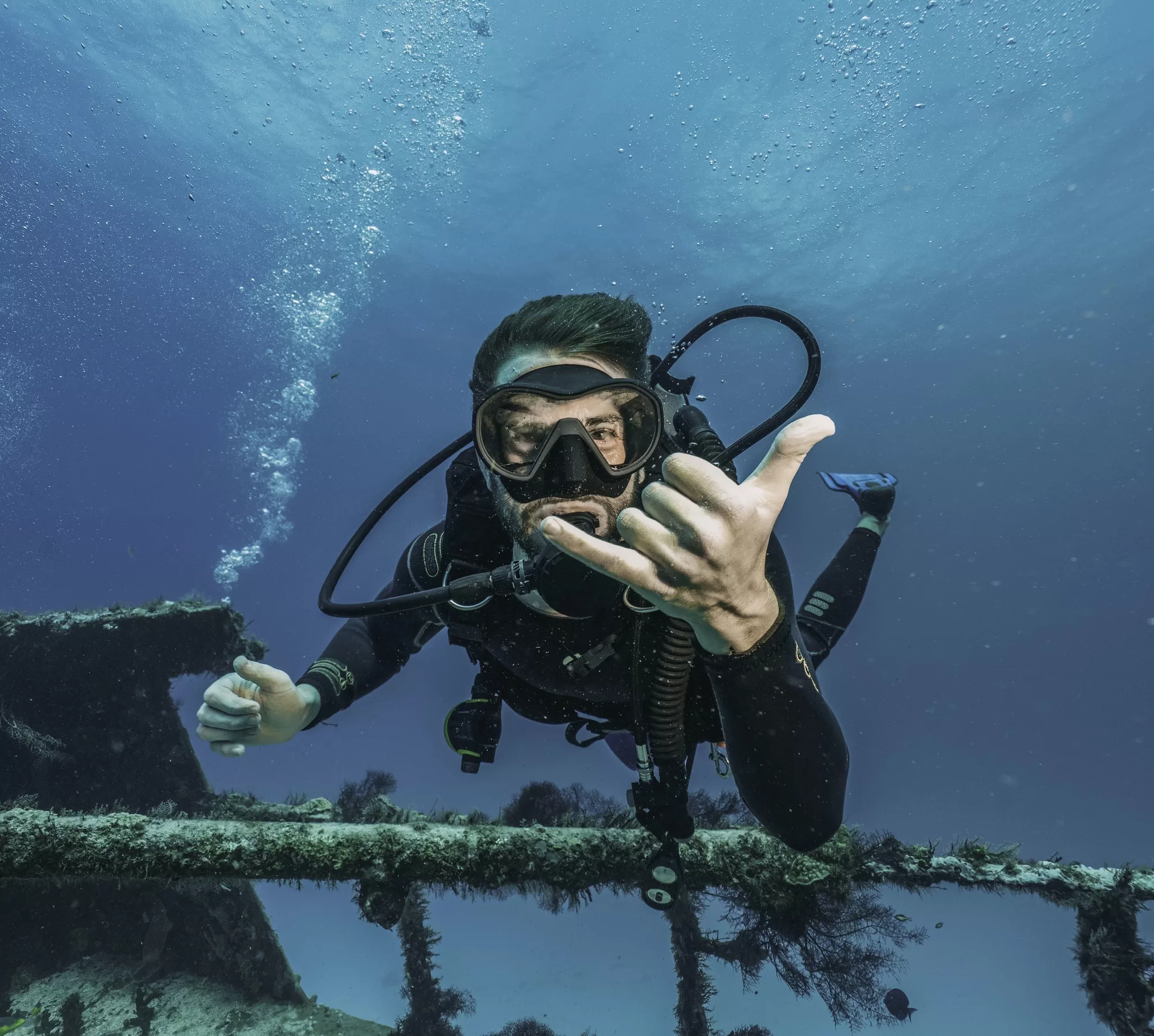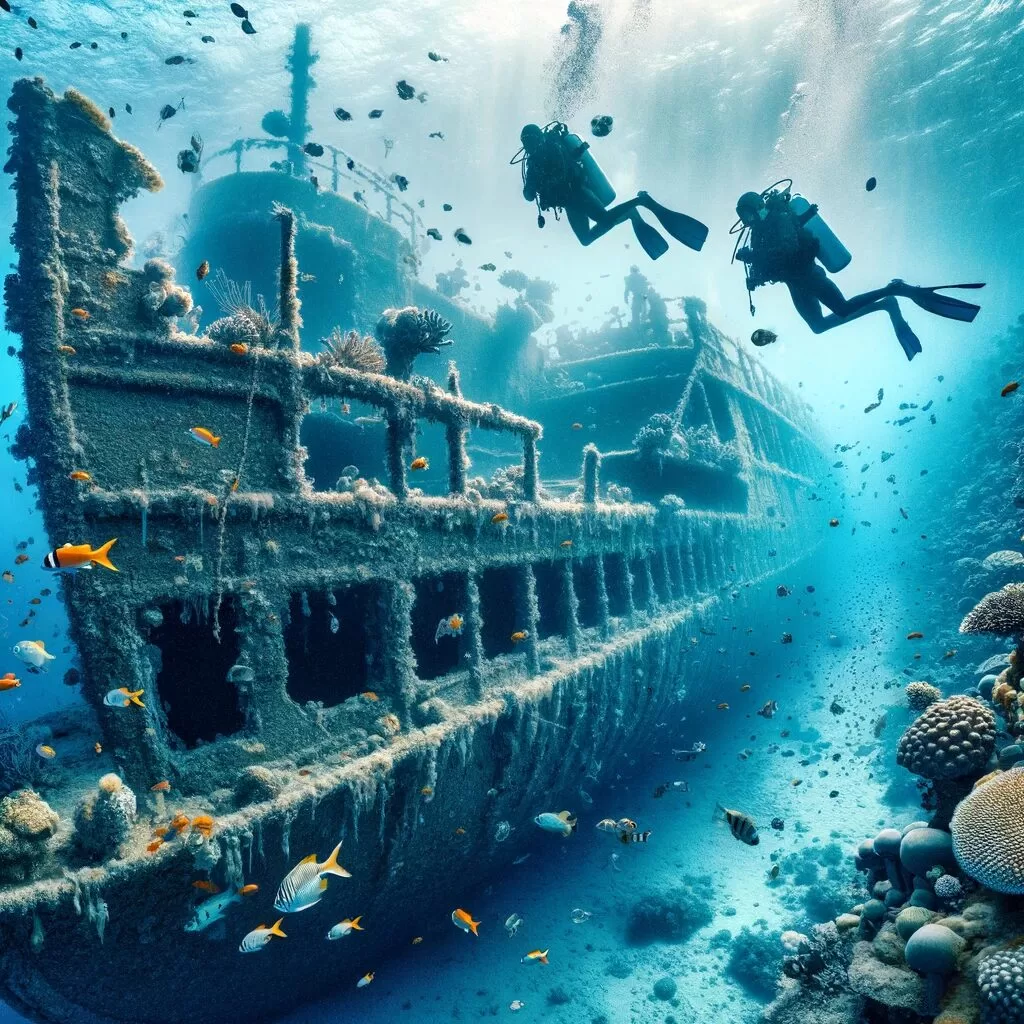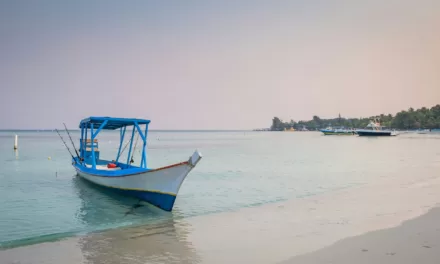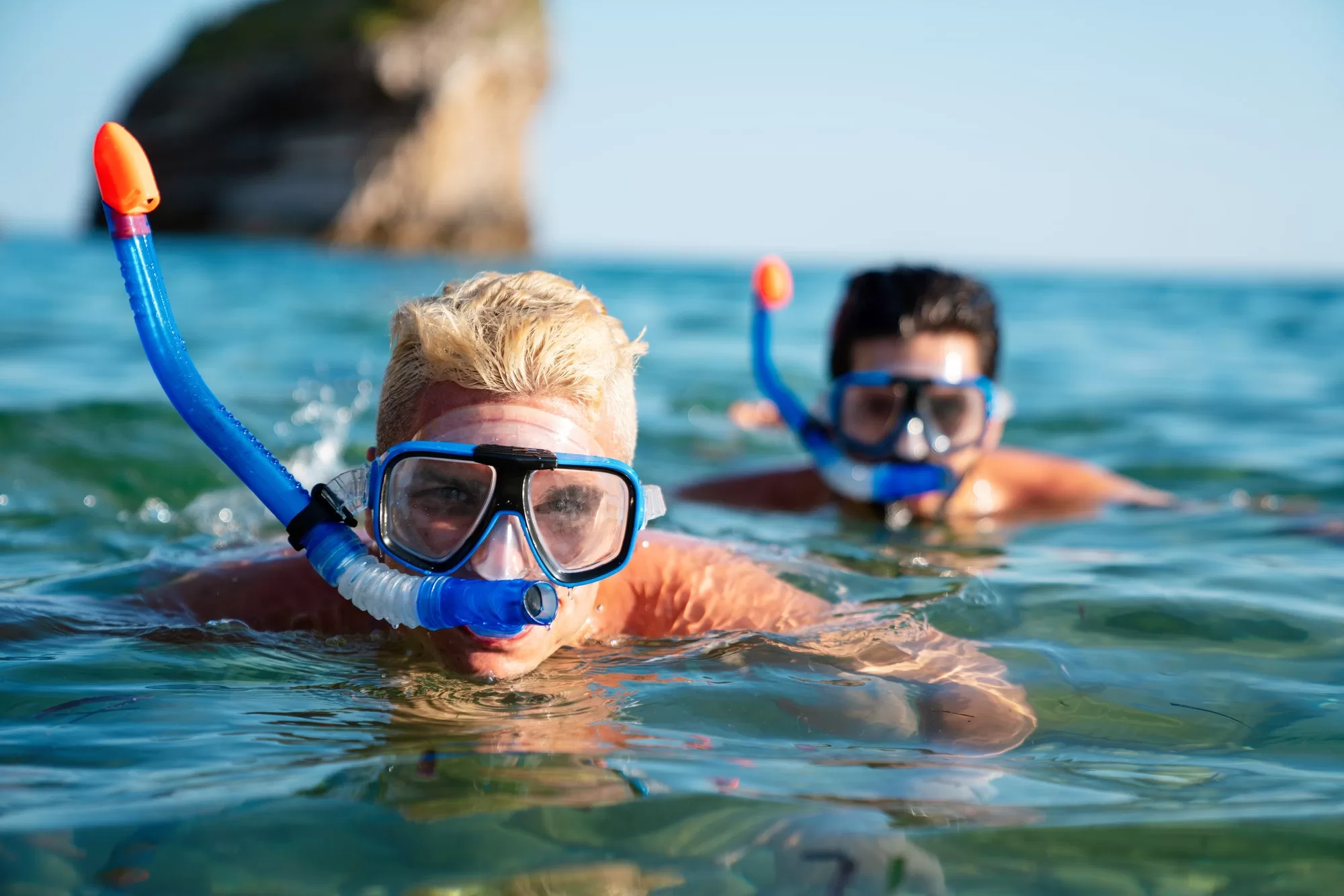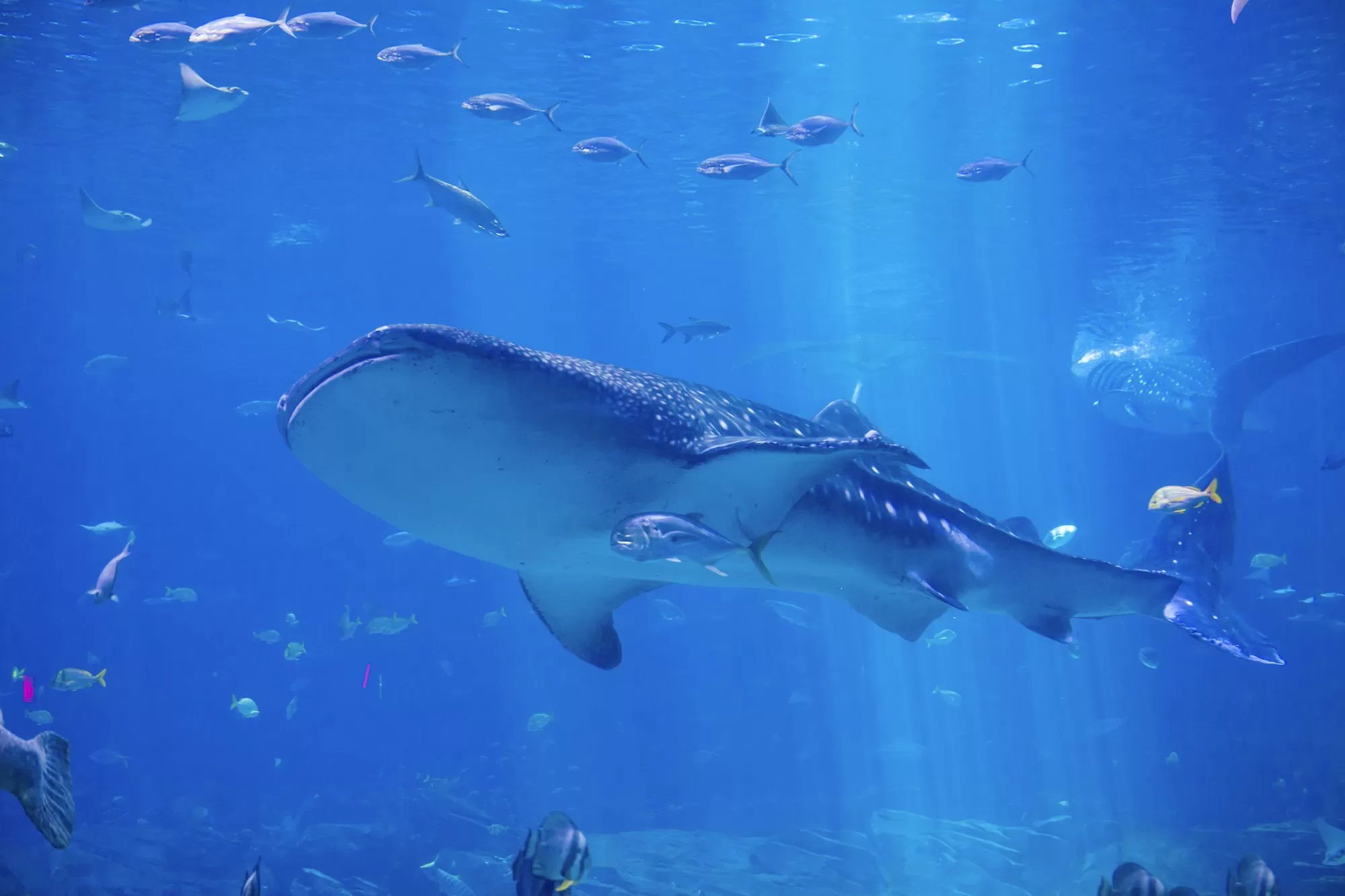Introduction
Hey there, fellow underwater enthusiasts! Today, I want to take you on a different kind of diving journey – one that’s all about independence and self-discovery. Welcome to the world of solo scuba diving. Now, I know what you’re thinking – “Isn’t diving a buddy sport?” Well, traditionally, yes. But as the diving community evolves, so does the concept of diving solo. It’s not about recklessness or bravado; it’s about a well-prepared and self-reliant approach to exploring the underwater world. In this post, I’ll debunk some common myths and reveal why solo diving might just be the liberating experience you’ve been seeking.
The Allure of Solo Scuba Diving
Embracing the Freedom of the Depths
Imagine floating weightlessly in the serene blue, with nothing but the sound of your own breathing and the ocean’s heartbeat. That’s solo scuba diving for you – an experience that offers an unparalleled sense of freedom. When you dive solo, you’re the master of your own dive. You choose the pace, the path, and the moments you want to savor. It’s diving on your own terms, and the freedom that comes with it is exhilarating.
The Solo vs. Buddy Diving Experience
While buddy diving emphasizes teamwork and shared experiences, solo diving is all about self-reliance. It’s about having the confidence and skills to manage your dive independently. This doesn’t mean shunning the company of fellow divers; it’s simply a different
way to experience the underwater world. Solo diving pushes you to be fully aware of your surroundings, manage your equipment expertly, and trust in your ability to handle unexpected situations.
The Psychological Upsides of Diving Alone
There’s a unique psychological aspect to solo diving that’s both empowering and meditative. It’s a chance to connect with yourself and the ocean in a deeply personal way. Without the distractions of a group, you become more attuned to the subtle wonders of the marine environment – the dance of light through the water, the intricate patterns of coral, the curious gaze of a fish. It’s almost a spiritual experience, fostering a sense of mindfulness and presence that can be hard to find in our bustling surface lives.
Solo scuba diving isn’t just about exploring the depths of the
ocean; it’s about exploring the depths of oneself. It teaches self-reliance, hones decision-making skills, and provides an opportunity for introspection and personal growth. For those who are ready, solo diving can be a transformative journey, offering both challenges and rewards that are as unique as the individual diver.
Stay tuned as we dive deeper into the world of solo scuba diving. We’ll explore the essential skills, gear, and safety practices needed to embark on this independent underwater adventure. Whether you’re a seasoned diver looking to spread your wings or a curious newbie seeking a different kind of dive experience, solo diving has something to offer everyone. Let’s take the plunge into this fascinating aspect of scuba diving together!
Preparing for Solo Diving: Skills and Mindset
Mastering the Skills for Self-Reliant Diving
Solo diving isn’t just about being a good diver; it’s about being a great one. The key skills you need go beyond the basics:
- Advanced Buoyancy Control: This is crucial for maneuvering and maintaining stability without a buddy’s assistance.
- Sharp Navigation Skills: Without a guide or buddy, you need to navigate effectively using a compass and natural landmarks.
- Emergency Problem Solving: Being able to calmly handle potential issues like entanglement or equipment failure is a must.
The Mental Game: Preparedness and Decision-Making
The right mindset is your most important asset in solo diving. This includes:
- Situational Awareness: Constantly being aware of your environment and any changes occurring.
- Risk Assessment: Evaluating potential hazards and making informed decisions.
- Stress Management: Keeping cool under pressure is essential for effective problem solving.
Gaining Experience: When Are You Ready?
There’s no one-size-fits-all answer, but generally, you should have a substantial number of dives (many suggest at least 100) and feel very comfortable in various underwater conditions. Consider advanced and rescue diver certifications as stepping stones to build your skills and confidence.
Gear Essentials for the Solo Diver
Equipping for Independence: Redundancy is Key
When diving solo, your gear is more than just equipment – it’s your lifeline. Redundancy is vital. This means having backup systems in case of primary gear failure.
- Extra Air Supply: Carry a redundant air source like a pony bottle or a spare air system. This is crucial if your main tank has an issue.
- Reliable Dive Computer: A trustworthy dive computer is essential for monitoring your dive time, depth, and safety stops. Consider having a backup dive computer or a depth gauge and timer as a failsafe.
- Signaling Devices: Visibility is key in an emergency. Carry a surface marker buoy (SMB), whistle, or even an electronic signaling device like an EPIRB or a PLB (Personal Locator Beacon).
Investing in Quality Gear
Quality matters when your safety is on the line. Look for gear that’s:
- Durable and Tested: Your life depends on this equipment, so opt for well-reviewed and rugged gear.
- Appropriate for Your Dive Conditions: Gear suitable for tropical waters might not suffice in colder climates.
- Comfortable and Familiar: Use gear you’re comfortable with. Now is not the time to try out unfamiliar equipment.
Solo diving is an incredible experience, but it comes with the responsibility of being thoroughly
prepared, both in terms of skills and equipment. Remember, the key to a successful solo dive lies in meticulous planning, unwavering self-reliance, and a deep respect for the underwater environment.
As we continue our exploration of solo scuba diving, we’ll delve into safety practices that are essential for any solo diver. From planning your dive to managing emergencies, we’ll cover the critical aspects that make solo diving a rewarding, yet safe adventure. Stay tuned, as we dive deeper into the world of solo scuba diving, where independence meets the serene beauty of the underwater realm.
Safety First: Solo Diving Practices
Solo Diving: A Practice of Meticulous Planning and Assessment
- Comprehensive Dive Planning: Before each solo dive, detailed planning is crucial. This includes researching the dive site, understanding the currents and weather conditions, setting depth and time limits, and planning your entry and exit points. Always leave a dive plan with someone on the surface.
- Risk Assessment: Evaluate potential hazards specific to the dive site, like overhead environments or strong currents. Assess your personal fitness and health on the day of the dive. Remember, it’s okay to call off a dive if the risks seem too high.
- Emergency Management and Self-Rescue Techniques: Be prepared for emergencies. Practice self-rescue techniques regularly, such as managing air supply issues, dealing with entanglement, and navigating back to the surface or shore independently.
- Regular Skills Practice and Refreshers: Keep your skills sharp with regular practice sessions and refresher courses. Skills like buoyancy control, emergency ascents, and equipment management should be second nature to a solo diver.
Training and Certification for Solo Diving
Elevating Your Diving with Solo Diver Training
- Overview of Solo Diver Certification Courses: Several diving agencies offer solo diver certification courses. These programs are designed to equip you with the skills and knowledge necessary for safe and enjoyable solo diving. They typically include academic learning, skills development in confined water, and open water dives to practice solo diving techniques.
- Differences from Traditional Buddy Diving Courses: Unlike buddy diving courses
, solo diver training places a strong emphasis on self-reliance, redundancy in equipment, and handling emergencies independently. You’ll learn advanced navigation techniques, dive planning for solo scenarios, and how to respond to potential problems without a buddy’s assistance.
- Finding the Right Training and Certification Program: When selecting a solo diver certification course, consider the reputation and accreditation of the training agency. Look for experienced instructors who specialize in solo diver training. It’s also important to ensure that the course curriculum is comprehensive and aligns with your diving goals and experiences.
Remember, the decision to dive solo should never be taken lightly. It requires a higher level of expertise, experience, and preparation compared to buddy diving. By following rigorous safety practices, continuously honing your skills, and seeking specialized training, you can enjoy the freedom and unique experiences that solo scuba diving offers.
As you embark on this exciting journey, keep in mind that the ocean is a dynamic and ever-changing environment. Respect its power, cherish its beauty, and always prioritize your safety. Stay tuned for our next dive into the fascinating world of solo scuba diving, where we’ll explore some of the most breathtaking solo-friendly dive destinations around the globe. The adventure continues!
Choosing Solo-Friendly Dive Destinations
Finding Your Perfect Underwater Haven
- Identifying Destinations Suitable for Solo Divers: Look for dive sites known for their clear water, manageable currents, and well-established diving infrastructure. Reefs with abundant marine life close to the shore can be ideal for solo divers. Researching and reading about various dive locations is key.
- Logistics of Solo Diving in Remote vs. Popular Sites: Remote locations offer solitude and unspoiled beauty but often lack immediate support. In contrast, popular dive sites have better access to emergency services and fellow divers if needed. Weigh the pros and cons based on your experience level and comfort.
- Communicating with Dive Operators: Be upfront with dive operators about your intentions to dive solo. Ensure they are comfortable with solo divers and discuss the support they can provide. It’s also a good opportunity to verify the availability of rescue and medical services.
VII. The Solo Diver’s Community
Connecting with Like-Minded Underwater Explorers
- Finding Support and Advice from Other Solo Divers: Engage with the solo diving community. Local dive clubs, online forums, and social media groups are great places to connect with experienced solo divers, share experiences, and get advice.
- Online Resources and Forums for Solo Divers: Websites and online forums dedicated to solo diving can be treasure troves of information. They offer a platform to ask questions, learn from others’ experiences, and stay updated on the latest in solo diving practices and gear.
- Balancing Solo Dives with Group Dives: While solo diving is exhilarating, don’t overlook the benefits of group dives. Diving with others can provide opportunities to learn new skills, discover different dive sites, and enjoy the camaraderie of the diving community. A well-rounded diver enjoys the best of both worlds.
Embarking on solo dives offers a unique way to experience the underwater world, providing a sense of freedom and tranquility unmatched by other forms of diving. Whether you’re navigating a vibrant coral reef alone or connecting with fellow divers online, solo diving opens up a world of possibilities. Remember to dive safely, stay connected with the diving community, and most importantly, enjoy every moment of your underwater adventures. Happy diving!
